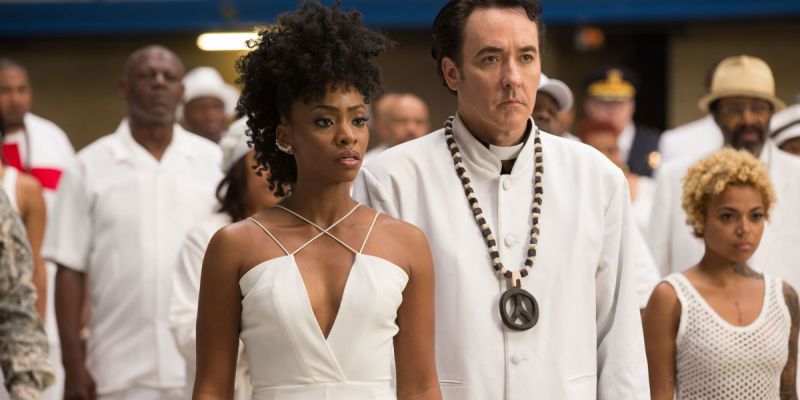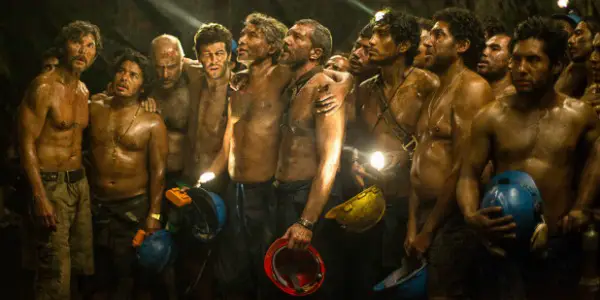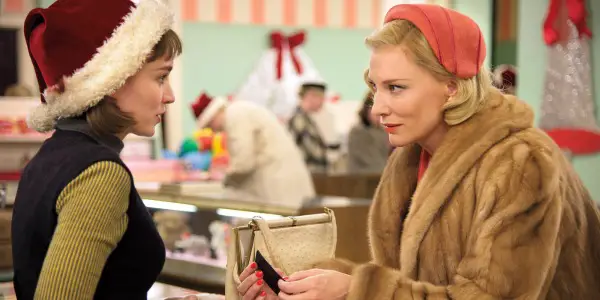Diversity, Hollywood, And Awards Season

I’m a scrappy, DIY New Yorker who fell in love…
The outcry against this year’s vanilla list of contenders for the 2016 Academy Awards is reverberating across the country with Spike Lee and Will and Jada Pinkett Smith boycotting Hollywood’s most prestigious fete of the year. Even Mark Ruffalo, nominated for Spotlight, considered joining the boycott before ultimately opting to attend the award ceremony. The Academy of Motion Picture Arts and Sciences made an announcement on Friday regarding new diversity initiatives, but I would hardly say that they’re ‘leading’ the industry by placing some restrictions on lifetime voting and finally attempting some diversity recruiting.
Admittedly, the Oscars have never reflected my personal taste (top 3 films of 2016: Mad Max: Fury Road with Sicario at number 4); nor do I think I’ve watched an entire Oscar broadcast in my life. This doesn’t mean that there isn’t a massive problem, though, when our country’s – arguably the world’s – leading cultural industry (filmmaking) can’t find any diversity to celebrate.
Purveyors of pop culture
The suspension of reality with the Academy Awards is two-fold. There has been a lot of talk over the past year about women and minorities struggling to get their foot in the revolving door of Hollywood, much less land a project with Oscar potential. This is a real problem that should be particularly stark in a year when the leading GOP contender for president is partially running on a platform of bigotry.
As purveyors of pop culture, Hollywood is guilty for not presenting the wider scope of our communities and creating narratives that represent our country and the world in its incredible diversity. Viewers also need to be aware and make conscious decisions to spend their money on projects by black, brown, Asian, LGBT, and female writers and directors, but let’s be honest: that’s a lot harder when there just aren’t that many with a wide distribution or a decent marketing budget targeting an audience.

I saw Patricia Riggen’s The 33 and Jessie Nelson’s Love The Coopers. I wouldn’t say that either warranted an Academy Award, but I watched 15 times that number of movies directed by men in the theater last year. I missed Catherine Hardwicke’s Miss You Already because it was in the theater for, what, a weekend? F. Gary Gray did a tremendous job with Straight Outta Compton, but a lot of recent, successful, diversity directors have moved to television. Ava DuVernay was snubbed last year for Selma and is now prepping a series. Lee Daniels has found great success with Empire. How many creators have never even made it to the starting gate? At what point will we acknowledge and rectify the amount of creative capital that we are bleeding out?
Lack of inclusion
I do not believe that most of the lack of inclusion in Hollywood and the Academy is done with intentional malice. Overt racism, misogyny, and homophobia are not topics I care to comment on in this particular editorial. Most decisions that are halting projects by women, members of the LGBT communities, and people of color are much more subtle than Donald Trump’s campaign, and even the most progressive-minded activist among us is guilty at times of bigotry.

I have found myself scoffing at some women before I give them the time of day. I immediately recoil at the automatic reaction that’s been forcibly instilled in me since childhood, realizing that these women suffer the same side eye that I have received, have been talked at instead of with, and are blocked from moving forward without proving themselves two and five times over what a straight, white man is expected to do. Pop culture – movies – have the power to change this for future generations, and I hope we do.
Furthermore, I empathize with Cheryl Boone Isaacs’ seemingly Sisyphean task of getting a private club with members being 94% white, 76% male, with an average age of 63, and presumably wealthy enough to stop looking in the mirror at other straight, white men’s projects and give the Chi-Raq or Carol screeners a chance.
There has been some talk about a lack of award-worthy performances by artists of color this year, which is subjective. I would counter with the cast of Compton, Tessa Thompson in Creed, and Abraham Atta and Idris Elba in Beasts of No Nation; although Beasts was neglected due to politics. No studio in Hollywood wants to acknowledge Netflix as a contender, but that is beside my thesis.
The main point is that the nominations result from a lack of options as well as a lack of self-awareness and willingness to push past comfort zones among the minted in Hollywood.
This year will be like every other year. I will not be tuning in to the 88th annual Academy Awards. The Academy will pat itself on the back for a few interesting films and a lot of the usual fare whether I watch or not. If the boycott picks up steam, though, there is the potential to not only change the Oscars but also the movie industry as a whole. May the greenlights begin!
Does content like this matter to you?
Become a Member and support film journalism. Unlock access to all of Film Inquiry`s great articles. Join a community of like-minded readers who are passionate about cinema - get access to our private members Network, give back to independent filmmakers, and more.
I’m a scrappy, DIY New Yorker who fell in love with movies at a young age. My first short film is the award-winning "Feline Frenzy," which screened at festivals, and I’m developing an Appalachian Godfather tale called “'Shiner” for television. The “‘Shiner” pilot script was nominated to the 2016 #WriteHerList and made the Hot 100 of Capital Fund’s Screenplay Competition. Aside from writing and directing, I have long advocated for gender, racial, and LGBTQ parity and representation inside and outside of the film industry. To that end, I created and run Cinefemme's Dinner with Dames as the Program Director. More information at www.jennapayne.com.













